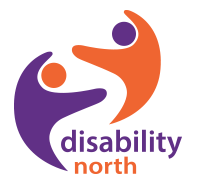Many local authorities are unlawfully restricting disabled people’s ability to choose to live independently in their own homes, and are forcing them instead towards residential care, research by a disabled campaigner suggests.
Fleur Perry spent more than six months seeking and analysing information about the independent living policies of more than 230 councils across England, Scotland and Wales, using the Freedom of Information Act.
She wanted to discover their policies on providing choice to disabled people in need of social care.
In those responses, most of the local authorities failed to provide a clear picture of their approach to independent living, and whether their policies risked forcing people into residential care against their will.
But of the 36 councils in Britain that did provide enough evidence, Perry concluded that there were concerns about the approach taken by 22 of them, while the other 14 appeared to respect service-users’ human rights, for example by actively promoting independent living and choice “over and above legal requirements”.
She also found that with every one of the 18 local authorities in England where there were concerns about their independent living policies, each one of them had much higher rates of people living in residential or nursing accommodation than the national average.
One of the responses that concerned Perry came from Bedford council.
The council had told Perry that the maximum weekly amount it would spend on a care package “will be no more than the net weekly cost to Bedford Borough Council of a care home placement that could be commissioned to meet the individual’s assessed eligible needs”.
Jenny Morris, a member of the Independent Living Strategy Group – Perry is also a member – who helped write the Labour government’s Improving the Life Chances of Disabled People white paper, welcomed the new research.
She said the group’s understanding was that policies like Bedford’s breach government guidance on the Care Act because “local councils should not set arbitrary upper limits on how much they will pay to meet a person’s eligible assessed needs”.
Morris welcomed Perry’s research, and said: “It is very worrying that we are seeing more and more examples of the yawning gap between what the Care Act intends to happen and what disabled people are actually experiencing.
“Article 19 of the UN Convention [on the Rights of Persons with Disabilities] – which our government has ratified – states that disabled people should have the right ‘to choose their place of residence and where and with whom they live on an equal basis with others and are not obliged to live in a particular living arrangement’.
“If the policy of councils such as Bedford is not halted we will soon be back to the days when to be disabled meant to be hidden away in an institution.”
A Bedford council spokesperson said: “The Bedford Borough Council Fair Care Policy is used as a trigger for discussion and there is not a limit or a cap.
“We will assist people in choosing the support they want to meet their needs and not push disabled people towards residential care and away from independent living.”
Perry’s research was published this week in the online disability lifestyle magazine Disability Horizons, which is run by disabled people.
She decided to carry out the research after she was asked by Disability News Service (DNS) last March to comment on concerns that disabled people would be forced into residential homes against their will by Conservative-run Barnet council’s new cost-cutting adult social care policy.
Perry had already raised concerns about similar policies in NHS clinical commissioning groups in 2017.
In response to the Barnet concerns, she submitted freedom of information requests to every local authority that funds social care across England, Scotland and Wales.
It took her more than six months to submit the requests, chase up those local authorities that failed to respond, and collate and analyse the results.
Perry said: “Residential accommodation by default is a threat to the independent living movement and to disabled people’s choice and control over their own lives.”
Among the concerns she uncovered were councils putting pressure on disabled people set to be discharged from hospital; councils that would only offer enough funding to pay for one option of where they would live; and councils that failed to make it clear that they recognised the rights of their service-users.
And she said that legislation and guidance failed to protect people’s right to live independently.
She said: “Though ‘genuine choice’ is emphasised as a key principle, restrictions that seem to completely remove or limit choice without justification are not difficult to find.
“Changes must be made to ensure that people can meaningfully make choices about their own lives without undue pressure or restriction.”
In a report based on her research, she calls for the government to introduce a legal right to independent living, and an Independent Living Act, and for policy-makers to engage with disabled people and disabled people’s organisations “to make change happen”.
30 January 2020. News provided by John Pring at www.disabilitynewsservice.com

